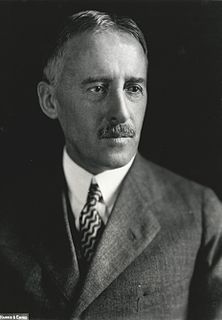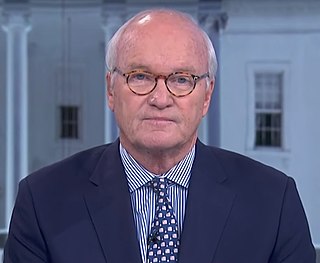A Quote by Henry L. Stimson
History is often not what actually happened but what is recorded as such.
Related Quotes
Life and study have persuaded me of the openness of history. There is no inevitability in history. Thinking about what might have happened, what could have happened, is a necessary element in trying to understand what did happen. And if, as I believe, individual acts of decency and courage make a difference, then they need to be recorded and remembered.
Not all that is presented to us as history has really happened; and what really happened did not actually happen the way it is presented to us; moreover, what really happened is only a small part of all that happened. Everything in history remains uncertain, the largest events as well as the smallest occurrence.
So, you could often say things are terrible and that accounts for what happened, or things are really bright, and that accounts for what happened. Often, the real explanation for what happened is much more subtle and interesting and involves maybe small shocks or what a couple people did on a Wednesday morning that changed the arc of history.
'A Naval History of Britain' which begins in the 7th century has to explain what it means by Britain. My meaning is simply the British Isles as a whole, but not any particular nation or state or our own day... 'Britain' is not a perfect word for this purpose, but 'Britain and Ireland' would be both cumbersome and misleading, implying an equality of treatment which is not possible. Ireland and the Irish figure often in this book, but Irish naval history, in the sense of the history of Irish fleets, is largely a history of what might have been rather than what actually happened.
In 5,000 years of recorded human history... neither in the east or in the west... has any society ever defined marriage as anything other than between men and women. Not one in 5000 years of recorded human history.
That's an astounding fact and it isn't until the last 12 years or so that we have seen for the first time in recorded human history marriage defined as anything other than between men and between women.
You're in a very nice position as an actor when you're portraying a piece of history that actually happened and portraying characters that actually existed. There's so much more to draw on and your research as an actor becomes much easier than if it's some fiction that you're trying to create a world around and background and history.
We’re constantly changing facts, rewriting history to make things easier, to make them fit in with our preferred version of events. We do it automatically. We invent memories. Without thinking. If we tell ourselves something happened often enough we start to believe it, and then we can actually remember it.
For some people, history is simply what your wife looks good standing in front of. It’s what’s cast in bronze, or framed in sepia tones, or acted out with wax dummies and period furniture. It takes place in glass bubbles filled with water and chunks of plastic snow; it’s stamped on souvenir pencils and summarized in reprint newspapers. History nowadays is recorded in memorabilia. If you can’t purchase a shopping bag that alludes to something, people won’t believe it ever happened.











































